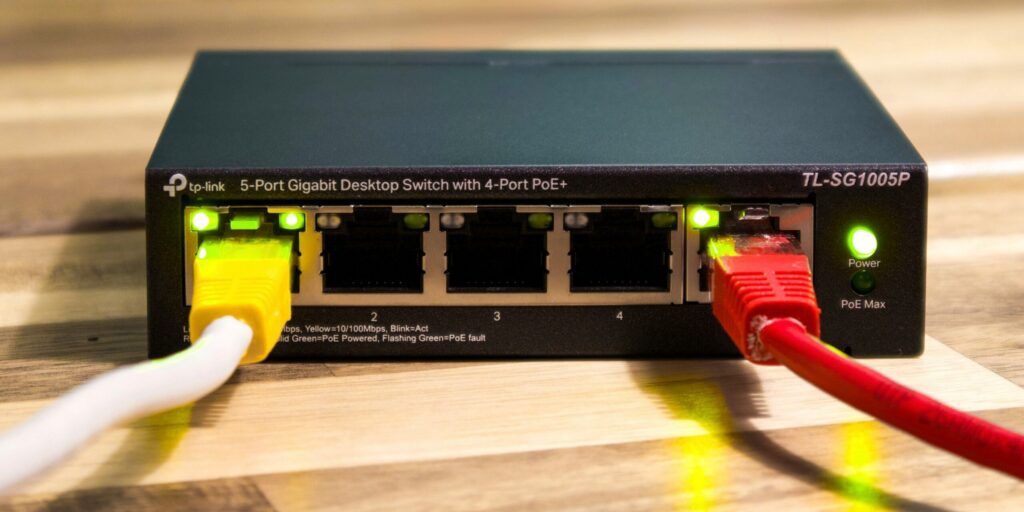The U.S. Department of Commerce has proposed a ban on the sale and distribution of TP-Link home WiFi routers, citing national-security risks tied to the company’s connections to China. The proposed ban, which emerged from a multi-agency risk assessment, highlights growing concerns within the U.S. government about the cybersecurity vulnerabilities of widely used consumer tech devices. According to reporting from The Washington Post, federal officials from agencies including the Department of Homeland Security, the Department of Justice, and the Department of Defense support the measure, emphasizing the risk of foreign influence and potential backdoor access to sensitive home networks.
TP-Link, a popular brand with a major footprint in the American home-networking market, has long been favored by consumers for its affordable and easy-to-use WiFi equipment. Estimates suggest that TP-Link products account for as much as half of the home-router market in the U.S., with millions of units currently installed in households nationwide. But that widespread adoption now sits at the center of a national security debate, with experts warning that such devices—though marketed as simple home accessories—are, in reality, critical digital gateways that connect homes to the broader internet ecosystem.
The Department of Commerce’s proposed action stems from concerns over TP-Link’s supply chain and potential for foreign government influence. While the company maintains that it operates independently and has robust cybersecurity protocols, U.S. officials remain wary of any tech infrastructure with roots in China, citing the potential for espionage or cyber sabotage. This anxiety is not without precedent. In recent years, U.S. agencies have increasingly taken aim at Chinese-linked tech firms, including Huawei and TikTok, over fears that the Chinese government could compel companies to share data or provide system access under national security laws.
A key concern is the ability for connected devices to be compromised via software or firmware updates—pathways that, if controlled or manipulated, could be exploited to gain unauthorized access to personal data or even broader networks. Security researchers have pointed to past incidents involving TP-Link devices, including a 2024 case in which certain routers were exploited by foreign state-linked hackers to harvest credentials and facilitate lateral movement into corporate and personal systems. These kinds of vulnerabilities, officials argue, elevate home routers from a consumer issue to one of national infrastructure risk.
If implemented, the proposed ban could have widespread consequences. Retailers that stock TP-Link routers would need to remove them from shelves and e-commerce platforms. Internet service providers that bundle routers with service plans would need to quickly find alternative vendors and possibly re-certify their networking hardware. The disruption could also ripple through the global supply chain, as vendors and manufacturers scramble to adapt to shifting U.S. standards for imported technology components.
Moreover, the proposal could reshape consumer behavior. With rising awareness of cybersecurity risks, consumers may begin demanding higher standards of transparency and accountability from manufacturers. Industry analysts believe the move could encourage the adoption of secure-by-design practices and more rigorous third-party certifications for devices that connect to home networks. Additionally, cybersecurity experts anticipate a surge in interest in network-segmentation strategies among consumers. This practice involves dividing a home network into isolated segments—for example, keeping smart TVs or appliances on a separate network from laptops or work devices—to minimize the impact of any single device being compromised.
For those currently using TP-Link equipment, the government has not issued any directive to immediately remove or replace the devices. However, cybersecurity professionals recommend that users take proactive steps to safeguard their networks, including updating device firmware regularly, changing default administrative passwords, enabling encryption and firewall protections, and monitoring for any unusual network activity. In the absence of a formal recall or ban, these measures can help mitigate potential threats while policymakers determine the next course of action.
TP-Link has responded to the proposed ban by denying any wrongdoing and defending its cybersecurity practices. The company has stated that it takes the safety and privacy of its users seriously and complies with all applicable laws in the markets where it operates. It also challenged the U.S. government’s claims, asserting that it has not been provided with evidence of misuse or compromise that would justify such a sweeping action.
Still, the political momentum appears strong. The proposal reflects a broader trend of rising tech nationalism, where concerns about digital sovereignty, data control, and foreign access to critical technology are driving major policy shifts. As tensions between the U.S. and China continue to simmer, consumer electronics—once viewed solely through the lens of convenience and innovation—are increasingly seen as strategic assets with implications for national defense and economic security.
In the coming weeks, the Commerce Department is expected to open a formal review and comment period before finalizing the proposed ban. During this time, industry stakeholders, cybersecurity experts, and civil rights advocates will likely weigh in on the implications for consumers, manufacturers, and the broader tech ecosystem. The outcome could set a precedent for how the U.S. approaches imported technology products going forward—and how far it is willing to go in the name of cybersecurity and national resilience.


